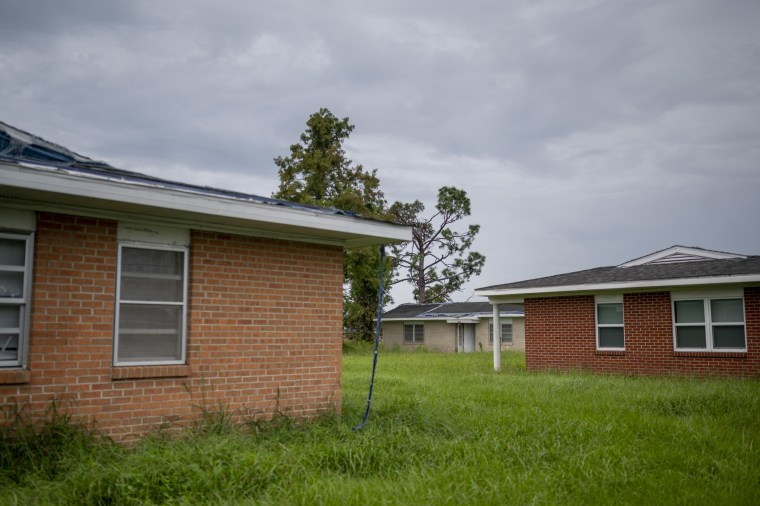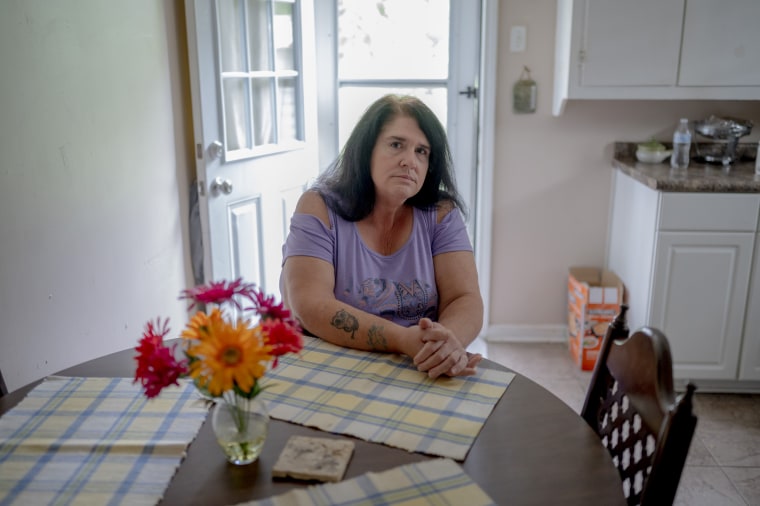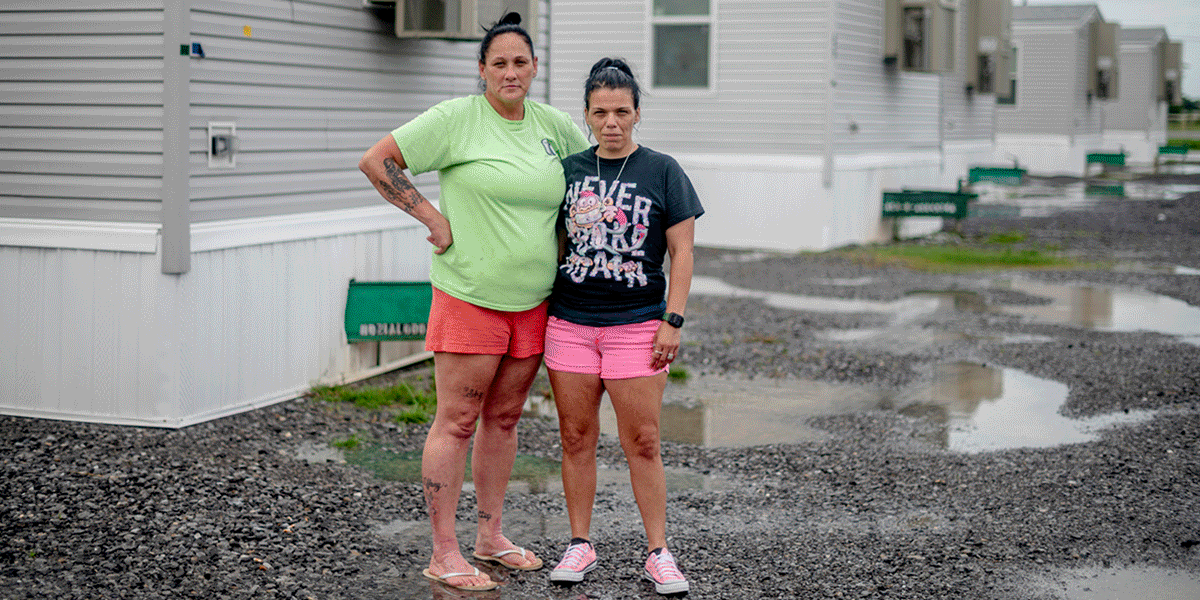Jenny Schexnayder, 52, a program manager at Nicholls State University who lives 30 miles outside Houma, said her home sustained nearly $200,000 in damage that her insurance company largely refused to cover for months, until reversing course in June under the threat of litigation.
“We survived. We rode out the storm,” she said. “Everything we’re trying to repair is so we can feel safe for the next storm.”
Attorneys representing two apartment complexes filed lawsuits in federal court Aug. 17 alleging that one carrier, Steadfast Insurance Co., refused to fully cover damages wrought by Ida. Belmere Apartments in Houma and Acadia Villas in Thibodaux say they sustained severe damage during the storm’s fury.
The legal news service Law360, which first reported on the lawsuit, said the filing could be the first of many as the statute of limitations on cases approaches. Three spokespeople for Zurich Insurance Group, Steadfast’s corporate parent, did not respond to an email seeking comment on the lawsuit.
‘I don’t want to wind up homeless again’
Ida splintered homes and apartment units in Houma, leaving many people without a permanent place to live in a city where the median household income was roughly $45,000 a year as of July 2021, according to U.S. Census Bureau data — roughly $20,000 under the national average.
The Houma-Terrebonne Housing Authority condemned nearly all of the city’s 517 public housing units after the storm, leaving the buildings mostly abandoned and tenants adrift.

FEMA stepped in to try to fill the gap, setting up trailer camps across the parish, according to Elizabeth Daigle, 42, a social worker and program manager at the South Central Louisiana Human Services Authority, or SCLHSA, a local governing entity.
She said that at least 120 families have been staying in hotels or living with family members while they wait for additional FEMA housing. FEMA deployed some $150 million in individual assistance to the parish, according to a parish official, but many locals are still struggling to find and keep permanent residences.
“We have a housing shortage here,” said Earl Eues, the director of the Terrebonne Parish homeland security and emergency preparedness office. “Even before the storm, we had very little available to people that were here, and the storm just exacerbated that issue,” he said, referring to low-income housing.
Ida hit at a financially perilous time for Amee Autin. In the early months of the pandemic, the 50-year-old retail store manager needed to stop working and go on disability benefits because she was experiencing painful complications from a childhood diagnosis of scoliosis. When the storm arrived, she was nearly broke.

The storm wrecked her public housing unit — cracked foundations in the bedroom, floodwater and mold seemingly everywhere in sight. The building was condemned and she started living in a hotel room with help from Start Corp., a local nonprofit organization that provides medical and mental health services.
Autin recently rented a small house, but she is deeply anxious that her monthly disability checks will not be able to cover the roughly $1,000 monthly rent and basic necessities for survival for much longer — and she knows that affordable housing in the area has become increasingly scarce.
“I have to cover gas, lights, insurance, medicine, household supplies, toilet paper, paper towels, the normal needs — needs, not wants. Everything is just so outrageous. I’m struggling every day.” Autin said. “I don’t want to wind up homeless again.”
“Houma was my safe place,” she added. “But now that I’m older, this is no longer my safe place.”
Source: | This article originally belongs to Nbcnews.com










